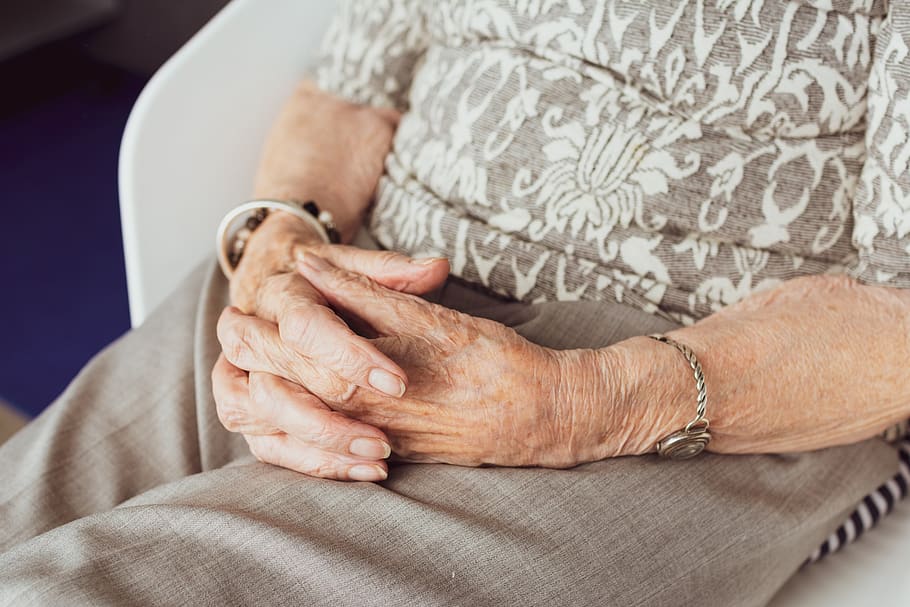
Dan O’Donnell outlines a disturbing pattern of vote fraud in nursing homes and assisted living facilities.
November 18, 2020
Guest perspective by Dan O’Donnell
Ethel was about as reliable a voter as there is. For most of her life, she enjoyed doing her civic duty; and not just every four years in presidential elections. Ethel voted in midterm elections, spring primaries, and pretty much every local election she could.
Since 2012, she has missed just five elections, even voting in this year’s presidential primary at age 95 during the height of the COVID-19 pandemic.
The problem? Ethel suffered from dementia and, according to her daughter Janet, barely knew who she was or what she had for lunch that day.
“She has not watched TV or read a newspaper in years, just did not care about it anymore,” said Janet, whose name has been changed to protect her identity (as has her mother’s). “She hasn’t been lucid enough to make any qualified decisions for years. I was her power of attorney and had legal paperwork stating she was incapacitated and not able to make her own decisions, which is on record at her facility.”
Ethel died in early October, two weeks before her completed mail-in ballot for this month’s Presidential Election was returned to her local clerk’s office.
Her story is tragically not unique. Systemic vote fraud in nursing homes is likely rampant not only in Wisconsin, but across the country.
“It is absolutely an epidemic,” explained the operator of an assisted living facility in Dane County, who spoke on condition of anonymity. “Votes are stolen all the time because it’s just so easy to do.”
In Wisconsin, state law requires a local clerk or elections board to name two “special voting deputies” (one from each major political party) to conduct all in-person and mail-in absentee voting at each qualified nursing home and assisted living facility in the municipality.
Because of the COVID-19 outbreak in March, however, the Wisconsin Elections Commission barred special voting deputies from entering these facilities and simply had ballots mailed to residents directly.
“This was a disaster,” the assisted living facility operator said. “There was no oversight at any of these homes and residents were taken advantage of.”
That’s exactly what Susan, a disability service coordinator in the Milwaukee area, alleges happened to each one of her more than 20 clients.
“I haven’t been able to see them in person since March because of COVID, but we do Zoom calls regularly,” she explained. “Right after the election, one of my clients said that he voted for [Democratic Presidential candidate Joe] Biden but didn’t want to.”
Her curiosity piqued, Susan (whose name has been changed because she fears reprisal for blowing the whistle on what she believes is widespread fraud) then asked each of her other clients about the election. Shockingly, all of them—who all live at various assisted living centers and group homes in and around Milwaukee—said that they either had a ballot filled out for Biden in their name or were pressured to vote for Biden by staff members who assisted them in voting.
One woman even told the staff member at her home who was helping her vote that she wanted to vote for President Trump, but the staffer marked her ballot for Biden anyway.
“She told me, ‘I really wanted to vote for Trump, but [the staff member] said ‘no, he’s a bad man. We’re voting for Biden,'” Susan said. “And the staff member instructed her to vote for Biden. So she did. But she wasn’t happy about it.”
Susan’s experience convinced her that this sort of fraud in nursing homes is far more prevalent than anyone cares to admit.
“If it happened to all of them, it’s happening to a lot of people–the sort of people who we should be protecting and instead they’re just being used to steal their votes. It’s just heartbreaking.”
A little over a month ago, a mayoral candidate in Texas was arrested and charged “with 109 felonies for fraudulently requesting and obtaining mail-in ballots he alleged were for nursing home residents.”
According to the Texas Scorecard, Carrollton mayoral candidate Zul Mirza Mohamed requested ballots “on behalf of Carrollton residents to be sent to a post office box in Lewisville, which purportedly belonged to a nursing home facility. Investigators contacted the voters and found they had not made the ballot requests.”
Instead, Mohammed himself picked up the fraudulent ballots that he had requested.
In 2018, the Philadelphia Inquirer investigated dozens of absentee votes at a nursing home that were likely not cast by the residents themselves; including one woman who made a point not to vote and didn’t for more than 30 years because she didn’t want to get called for jury duty.
A year earlier, D Magazine outlined massive fraud in Dallas County and City Council elections that centered on stealing the votes of the elderly and disabled.
“Why are these big envelopes being sent to many people who didn’t even request a mail-in ballot? Because before these ballots were harvested, these precincts were ‘seeded,’” the magazine explained. “Large batches of applications for ballots, stuffed in manila envelopes, had arrived at the county elections office, each request with a name from voter lists that had also been requested from said office.”
The elections office would then alert ballot “harvesters” when each precinct would receive their ballots, so they would know exactly when to show up to either coerce the elderly voter into voting the right way or simply steal their ballot and vote for them.
By ignoring the plain letter of state law requiring trained deputies to administer elections in nursing homes and care facilities, the Wisconsin Elections Commission made preying upon this state’s most vulnerable even easier.
Versions of this form of disenfranchisement of the elderly and disabled through the theft of their votes has been so widespread and pervasive that the bipartisan Commission on Federal Election Reform concluded in 2005 that “absentee ballots remain the largest source of potential voter fraud” and that those who vote “at nursing homes…are more susceptible to pressure, overt and subtle, or to intimidation.”
Those warnings have largely fallen on deaf ears, and the most vulnerable in society are paying the price. They are being preyed upon precisely because they are so vulnerable, and their votes are being stolen from them because the crime is nearly impossible to trace.
Disgustingly, by ignoring the plain letter of state law requiring trained deputies to administer elections in nursing homes and care facilities, the Wisconsin Elections Commission made preying upon this state’s most vulnerable even easier.
Is it any wonder, then, that Wisconsinites keep coming forward with stories of loved ones who couldn’t possibly be aware enough to vote still voting from their nursing homes?
This author even received the following email as he was writing this column:
“Hi Dan, My father-in-law is in a nursing home. [The] MyVote [database] shows he voted absentee this election and 2018. He is 101, ruled [legally] incapacitated. He is easily persuaded. We don’t know who did this.”
Possible fraud such as this is so difficult to discover because only family members like this emailer or whistleblowers like the ones quoted above are in a position to find it. It is therefore incumbent upon every single Wisconsinite with firsthand knowledge of what amounts to abuse of the elderly and disabled to come forward so that it is impossible to ignore.
Then it is incumbent upon everyone else to demand prosecution of it and legislation and enforcement to ensure that it never happens again.
